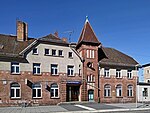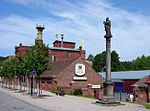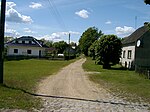EKO Stahl
EKO Stahl is a steelworks in Eisenhüttenstadt, Brandenburg, Germany. It was established by the East German government in the early 1950s on a greenfield site, initially producing only pig iron. The name was changed in 1961 from Eisenhuttenkombinat 'J.W. Stalin' to Eisenhüttenkombinat Ost (EKO). Cold rolling facilities were added in 1974, and basic oxygen steelmaking in 1984. After German reunification in 1990 the state-owned plant was privatised, and Belgian firm Cockerill-Sambre acquired it in stages from 1994 to 1998. Hot rolling facilities were added in the 1990s. Through mergers and takeovers, the owning comping since 2006 has been ArcelorMittal, and as of 2016 the plant is known as ArcelorMittal Eisenhüttenstadt.
Excerpt from the Wikipedia article EKO Stahl (License: CC BY-SA 3.0, Authors).EKO Stahl
Hochofenstraße,
Geographical coordinates (GPS) Address Nearby Places Show on map
Geographical coordinates (GPS)
| Latitude | Longitude |
|---|---|
| N 52.163948 ° | E 14.63934 ° |
Address
Hochofenstraße 7
15890
Brandenburg, Germany
Open on Google Maps










